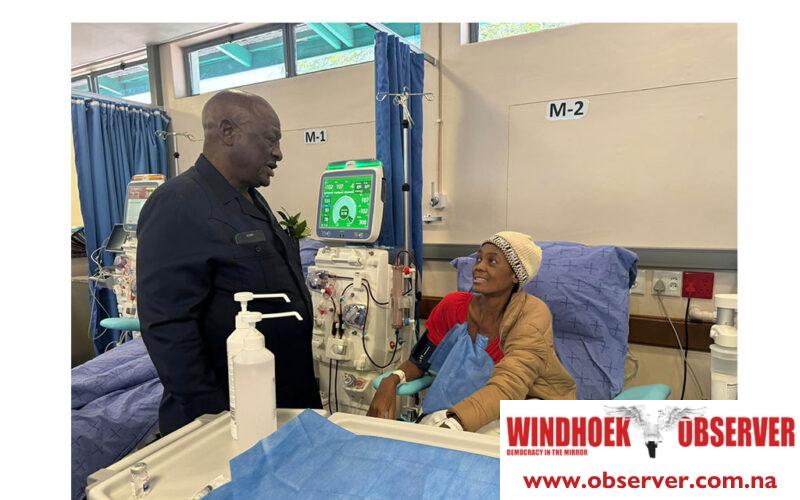Niël Terblanché
Oshakati Intermediate Hospital has been enabled to provide treatment to people suffering from chronic kidney failure after the inauguration of a new 15-machine dialysis unit.
Viewed as a substantial advancement for public healthcare in Namibia and improving access to lifesaving dialysis services in the north, the facility was officially commissioned by the minister of health and social services, Kalumbi Shangula on Friday.
“Until now, many patients had to travel long distances or rely on costly private sector services to manage their conditions,” the minister said at the inauguration.
According to Shangula, renal dialysis is essential for individuals whose kidneys can no longer filter blood adequately, leading to dangerous accumulations of water, waste, and salt.
Without timely intervention, such build-up can be fatal. Dialysis treatment allows these patients to lead healthier, more normal lives by ensuring their blood remains free from harmful substances.
“The availability of this treatment at Oshakati Intermediate Hospital will significantly reduce travel burdens and waiting times for patients who previously had limited options,” he said.
Shangula stressed the importance of this new facility in improving the country’s healthcare system.
He said that the absence of adequate dialysis services in state hospitals had been a huge challenge for years.
Shangula added that the government had to allocate more than N$100 million annually to outsource dialysis treatments to private facilities, which was financially unsustainable.
“The Oshakati unit is part of a broader effort to expand dialysis services across the country and reduce reliance on private sector providers,” he said.
Before this expansion, Oshakati Intermediate Hospital had only three dialysis machines, which were used primarily for emergency care.
The new unit, equipped with 15 haemodialysis machines, has already begun treating patients, with over 311 dialysis sessions conducted since its completion in July.
Dr. Shangula commended the dedication of the hospital staff, acknowledging their hard work in managing this essential service.
The launch of this unit follows similar efforts at Katutura Intermediate Hospital in Windhoek, which recently commissioned a 16-machine dialysis unit.
“Dialysis services are also being expanded to Rundu, Keetmanshoop, Katima Mulilo, Walvis Bay, and Otjiwarongo, forming part of a larger national strategy to increase access to lifesaving treatments,” he said.
While these expansions are critical, the minister stressed that preventing chronic kidney disease (CKD) remains a top priority.
CKD is often linked to non-communicable diseases such as diabetes and hypertension, conditions that are on the rise globally.
“By addressing the root causes through public health strategies, we hope to reduce the incidence of kidney disease and alleviate the burden on the healthcare system,” he said.
According to Shangula, the commissioning of the dialysis unit at Oshakati reflects the Namibian government’s broader objective of achieving universal health coverage.
Shangula stressed the importance of ensuring vital services are distributed equitably across the country, particularly in underserved regions.
He also stressed the importance of investing in the necessary human resources to support these new healthcare facilities.
Shangula added that continued efforts to strengthen healthcare infrastructure and services in Namibia will ensure that more citizens have access to the treatments they need to live longer, healthier lives.




